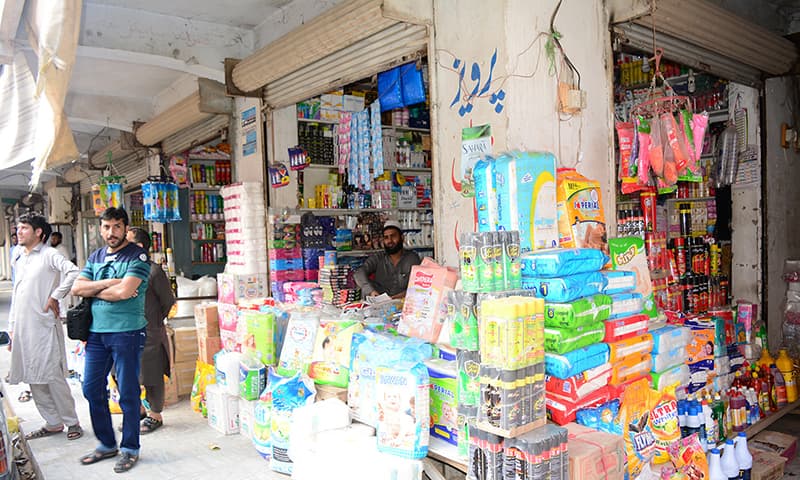Owing to a misperception among traders about the CNIC condition on sale of Rs50,000, the government announced on Thursday it would soon introduce a fixed tax regime for small traders after which they would not be bound to record CNICs on such sales.
However, the CNIC requirement would be mandatory for B2B transactions and government would not reverse this decision at any cost.
This was announced by Minister for Economic Affairs Muhammad Hammad Azhar while addressing a post-budget conference at Islamabad's Chamber of Commerce and Industry.
Azhar said that the contribution of the retail sector in GDP was 20 per cent, but its contribution to tax was just 0.25pc.
He said that 80-90pc retailers were not registered in the tax net and added that the government was determined to bring this sector into the tax system.
The minister said that the government aims to make a 35pc increase in tax revenue during FY 2019-20 and urged the business community to cooperate with the government in this regard.
He said that due to the faulty policies of the previous government, the country experienced deindustrialisation and vowed that the current government would further strengthen the industry.
"For this purpose, duty on import of industrial machinery would be reduced in the next budget," he said.
Azhar said that a 40pc tax revenue was collected at the import stage and the government wanted to rationalise it.
He said the key policy rate was enhanced to control inflation and added that with the reduction in inflation, key interest rate would also be reduced.
Commenting on high power tariffs, he said that 40pc electricity was being produced through imported fuel and that the government was working to generate energy through hydro and other indigenous sources that would bring down the costs to produce energy.
He also drew the audience's attention to the fact that the Federal Board of Revenue (FBR) was being automated and would better facilitate taxpayers and tax collectors.
He recounted that the previous government increased circular debt to Rs453 billion in one year while the current government aims to reduce circular debt to zero per cent in 2 years.
He assured the attendees that he would again visit ICCI along with the FBR chairman to address the tax issues of the business community.
Also speaking on the occasion, ICCI President Ahmed Hassan Moughal said that tax rates were high in Pakistan due to which people were avoiding paying taxes.
He urged the government to reduce tax rates and focus on broadening the tax base which would lead to an improvement in tax revenue.
He proposed reducing sales tax rate to a single digit level so that the cost of doing business can be brought down as well as inflation.
The ICCI president further said that the government should reduce duties on import of industrial machinery to boost industrialisation, employment, exports and tax revenue.















































